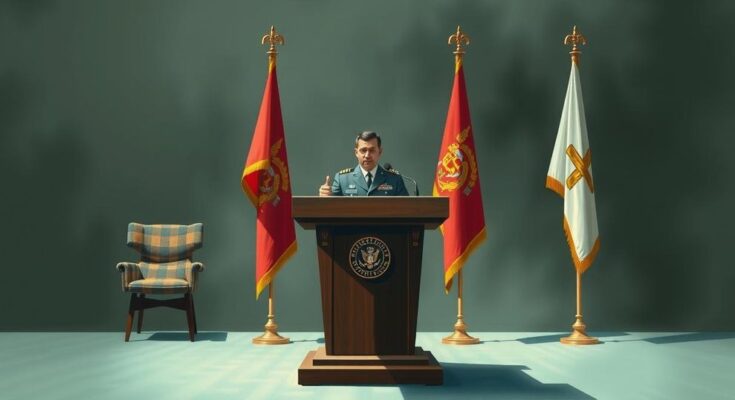- Defence Secretary Hegseth criticises media’s coverage of U.S. strikes against Iran.
- General Dan Caine recounts detailed accounts of missile attacks on U.S. base in Qatar.
- Trump expresses concern over reports, calling them ‘fake news’ and threatening accountability.
- Pentagon officials claim it will take time to assess full impact of strikes.
- Hegseth dismisses intelligence saying Iran’s nuclear progress set back only months.
Defence Secretary Critiques Media’s Responsibility on U.S. Strikes
In a pointed news conference held Thursday morning, Defence Secretary Pete Hegseth and General Dan Caine addressed significant recent U.S. strikes against Iran, likely reversing the country’s progress only temporarily. Notably, they responded to early leaked intelligence claiming these missile strikes merely put back Iran’s nuclear capabilities by a few months. This intelligence had begun making its rounds in the media, prompting a flurry of coverage that officials deemed irresponsible.
Media Scrutiny and Military Responses Intertwine
Hegseth, a former Fox News anchor, didn’t mince words when he took aim at what he labelled the media’s incessant ‘scandal hunting.’ He felt journalists were overlooking key developments, like a boost in military recruitment and the increased financial commitment from European allies towards their own defence. He then shifted focus to the so-called ‘fake news’ that reported negatively on the initial assessments of the strikes, suggesting reporters were sensationalising issues without understanding the facts.
Military Accounts of Events Laid Bare in Briefing
As the briefing unfolded, General Caine provided elaborate accounts of Iranian missile attacks on a U.S. base in Qatar, perhaps aiming to reshape narratives, depicting valor among U.S. troops. He highlighted that about 44 American service members defended the base during an extensive missile engagement, underlining the cooperation from Qatar that made for the most significant Patriot defence operation in U.S. history. Amidst this, Hegseth continued to stress the importance of contextualising intelligence assessments and rebutted assertions that privileged negative narratives; insisting the full extent of the attacks’ damage would take time to fully comprehend.
Overall, the Pentagon briefing showcased a tension-filled examination of the recent U.S. military action against Iran. With Hegseth heavily criticising media coverage for failing to grasp the significance of the operations, the ongoing dialogue surrounding U.S. involvement in Middle Eastern affairs remains very much alive. The ramifications of these strikes, both politically and militarily, continue to unfold, as officials seek to temper perceptions and highlight successes amidst ongoing challenges.




